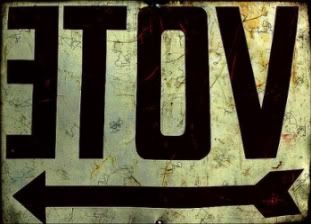by Michael Collins and Sheila Parks, Ed.D.
The formula for modern elections is simple.
Candidates must have significant sums of money to compete in primaries. That means anyone absent real money is left out. More importantly, those with the most money have the biggest advantage. Combining money with favorable media is generally a sure winner. (Image: Dean Terry)
Republican Scott Walker outspent Democrat Tom Barrett by nearly a two to one margin, $11 million to $6.7 million. With one exception, the most expensive races for Wisconsin's legislature were won by the best funded candidates. But money isn't the main problem. The fundamental problem with campaign financing is not the money itself, it's the commitments firmly attached to the donors.
When super wealthy donors like the Koch brothers get involved, you can be sure they expect a return for their investment. Again and again, we see policies flow from donors through their acquired political candidates, back to the original donor group in the form of legislative and regulatory preference. The US Supreme Court went out of its way to extend this practice with its Citizens United decision. That set the stage for Wisconsin and every other state and Congressional election in 2010. The results are apparent--particularly in Wisconsin--in terms of political offices held and actions on behalf of donors.
The response by the citizens of Wisconsin is a major roadblock to the toxic effects of unrestrained money and power on our elections. Yet even the wonderful Wisconsinites might find their roadblock unable to withstand the influence of big money and power, since most of the recalls in the August 9th General Election, like most elections in the USA, will be counted by electronic voting machines. A privatized electronic voting machine industry owns our elections.
In 2004, Wally O'Dell, CEO and Chair of the Board of Diebold, said he would help deliver Ohio to Bush. And he did. Election fraud has been going on at least since 1970. Read the book Votescam, by the late great brothers, James and Kenneth Collier. The book details the League of Women Voters fraudulently punching holes in punch card ballots, on election night, after the polls have closed.
Nina Totenberg and Helen Thomas are among the illustrious media people who chose not to report any of the Colliers' election fraud evidence. The Colliers understood that the US has a "great tradition of encouraging developing countries to adopt the computer method of vote counting." Recently, we are promoting international election fraud when Hillary Clinton "wonders" if India could help Egypt's new democracy with its elections. All the rights of the world depend on our voting rights.
If we lose those, we have nothing, and we have pretty much lost those rights already.
We must get rid of the influence of big money and power in our elections. The fraud of the electronic voting machines, coupled with the complicity of the corporate media and the politicians, are not glitches, errors, anomalies. To begin to solve this mess, we must immediately go to secure hand-counted paper ballot (HCPB) elections.
"You may say I'm a dreamer..."
Imagine a country where people defeated the big tobacco corporations.
It is right here, we did it! Now smoking is being banned inside private
apartments and cars in parking lots. It's happening because second-hand
smoke seriously harms us all and people took action. Now imagine a
country where all electronic voting machines are banned, from California
to Massachusetts. We can defeat those corporations too. Secure
hand-counted paper ballot (HCPB) elections are the only way to ensure
all our precious are counted as cast.
Originally published in: Justice Rising, Summer Edition 2011
Justice Rising is the quarterly Newsletter of Alliance for Democracy
For more information on HCPB go to this link and scroll down to the third urgent plea.
To see a video interview with James Collier go to http://video.google.com/videoplay?docid=924514983687454434&hl=en
(Note: You can view every article as one long page if you sign up as an Advocate Member, or higher).





